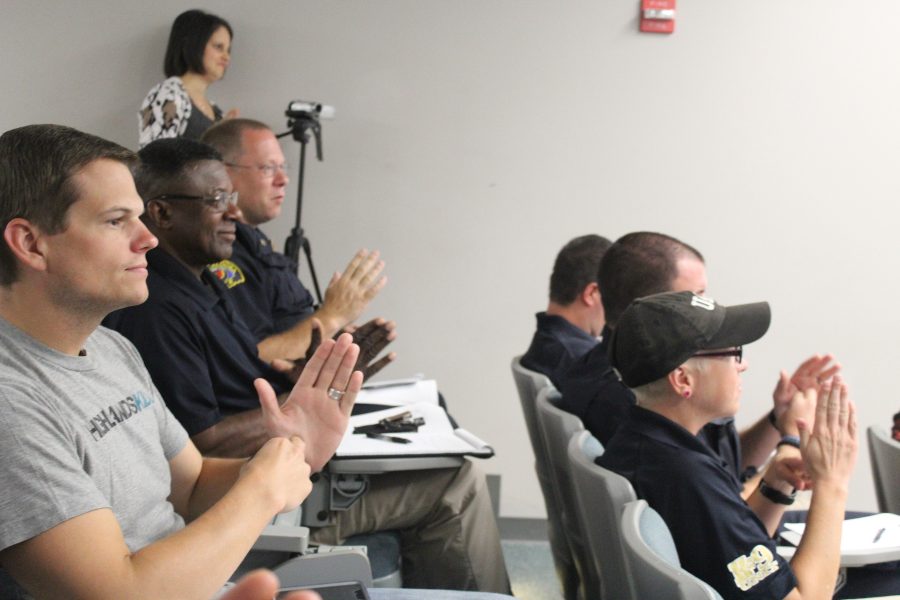Among the approximate 20 law enforcement officers present in Reese Phifer on Tuesday from the Tuscaloosa Police Department, Tuscaloosa County Sheriff’s Office and University of Alabama Police Department, almost every officer in the room spoke up saying they had previously encountered a deaf person.
Darrin J. Griffin, assistant professor of Communications Studies, and Erin Powell, Sign Language Interpreter from Atlanta who teaches American Sign Language in the University’s Honors College, saw a need for law enforcement to understand how to properly and efficiently engage the deaf community through policing. In order to do so, they held a training session for officers in the area in which they presented communication tactics, introduced what deafness is, deaf culture, deaf community, American Sign Language and the importance of the Americans with Disabilities Act (ADA).
The biggest problem is unconscious incompetence. “If you do not know that deaf people have a language and culture and those types of things, then you do not even know that what you are doing is inappropriate or incorrect,” Griffin said.
Recently, a deaf motorist was shot and killed by a state trooper in North Carolina. Griffin spoke out about how communication between law enforcement and deaf people is an ongoing issue.
“Growing up with deaf parents and being a part of the deaf community, this isn’t new,” he said. “I’ve been hearing about these stories my entire life.”
Because of the communication barrier, there is a need to build awareness of deaf culture among departments to avoid more tragedies. It is also necessary that departments understand the ADA and comply with its laws, so Griffin and Powell reviewed the rights of deaf people and spoke of a few previous lawsuits to the officers.
When encountering a deaf person, the two reminded officers to not be afraid tosign gesture, always allow the deaf person to determine the way to communicate, learn fingerspelling, ask questions, use facial expressions and share as much information as possible. The training session concluded by briefly teaching the following important signs to the officers: deaf, need an interpreter, license, registration, step out of the car, wait, help, police officer, stop, insurance, stay, ticket, emergency and hospital.
Tuscaloosa Police Department Sergeant Lachlan Chronister said he encountered a deaf person at a traffic stop early on in his policing career, and his lack of communication skills stuck with him. Because of that incident, he wanted to take advantage of this training session.
“There are so many ways for deaf people to communicate with us that we do not understand. We get locked into verbal language and we need to get across to our officers that there are other ways to communicate,” he said.









